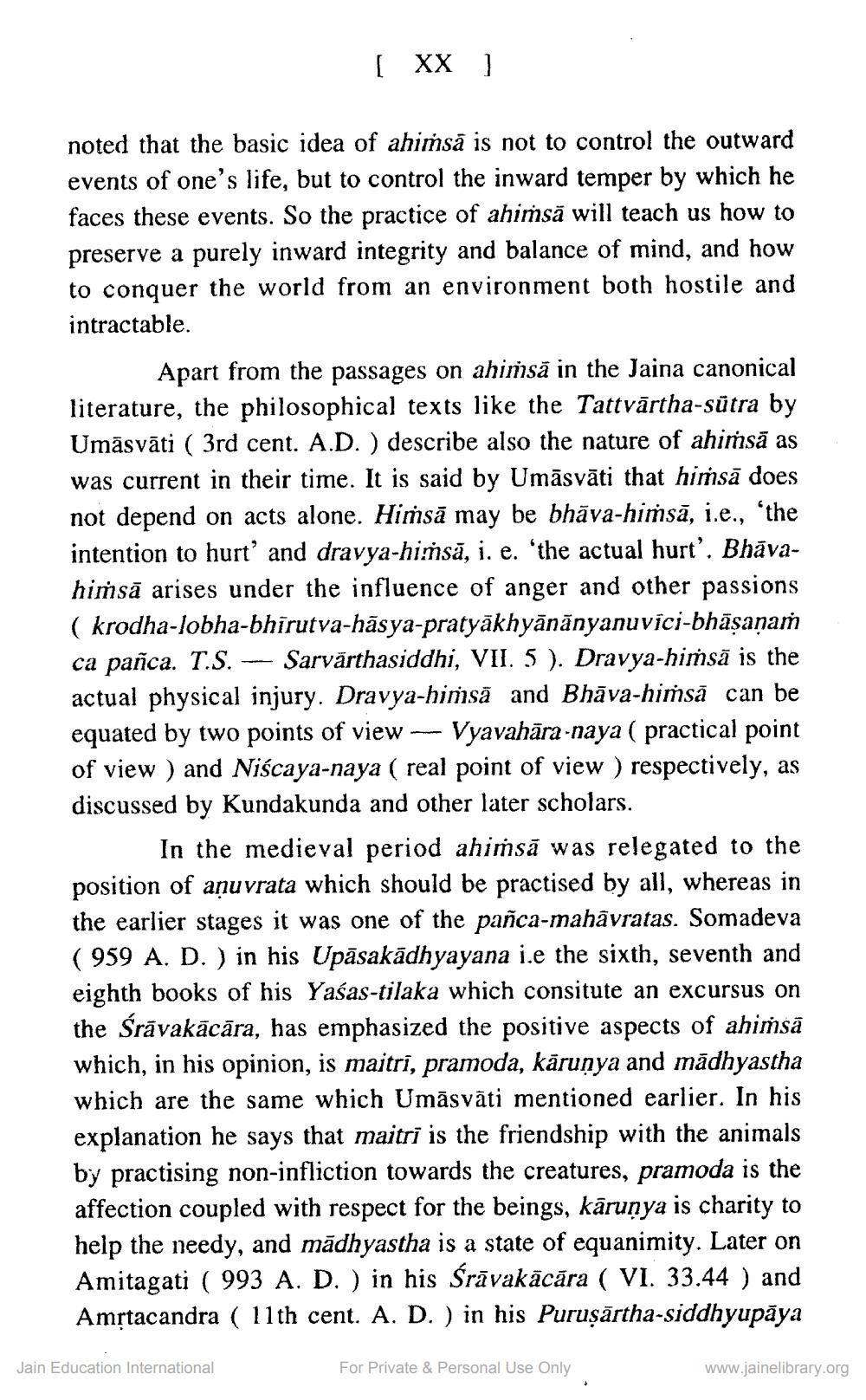________________
| XX1
noted that the basic idea of ahiṁsā is not to control the outward events of one's life, but to control the inward temper by which he faces these events. So the practice of ahimsă will teach us how to preserve a purely inward integrity and balance of mind, and how to conquer the world from an environment both hostile and intractable.
Apart from the passages on ahińsă in the Jaina canonical literature, the philosophical texts like the Tattvārtha-sūtra by Umāsvāti ( 3rd cent. A.D. ) describe also the nature of ahiṁsā as was current in their time. It is said by Umāsvāti that himsā does not depend on acts alone. Hiṁsā may be bhāva-hiṁsā, i.e., 'the intention to hurt' and dravya-hiṁsā, i. e. 'the actual hurt'. Bhāvahiṁsā arises under the influence of anger and other passions ( krodha-lobha-bhirutva-hāsya-pratykhyānānyanurici-bhāsanam ca pañca. T.S. - Sarvārthasiddhi, VII. 5). Dravya-hiṁsā is the actual physical injury. Dravya-himsā and Bhāva-hissä can be equated by two points of view ~ Vyavahāra-naya ( practical point of view ) and Niścaya-naya ( real point of view ) respectively, as discussed by Kundakunda and other later scholars.
In the medieval period ahiṁsā was relegated to the position of anuvrata which should be practised by all, whereas in the earlier stages it was one of the pañca-mahâvratas. Somadeva ( 959 A. D. ) in his Upāsakādhyayana i.e the sixth, seventh and eighth books of his Yaśas-tilaka which consitute an excursus on the Śrāvakācāra, has emphasized the positive aspects of ahiṁsā which, in his opinion, is maitri, pramoda, kārunya and mādhyastha which are the same which Umāsvāti mentioned earlier. In his explanation he says that maitri is the friendship with the animals by practising non-infliction towards the creatures, pramoda is the affection coupled with respect for the beings, karunya is charity to help the needy, and mădhyastha is a state of equanimity. Later on Amitagati ( 993 A. D. ) in his Śrāvakācāra ( VI. 33.44 ) and Amrtacandra ( 11th cent. A. D. ) in his Puruşārtha-siddhyupāya
Jain Education International
For Private & Personal Use Only
www.jainelibrary.org




